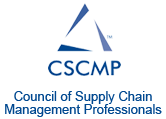X-treme Supply Chain Management – PC Edition
A collaborative effort between the University of Maryland and the makers of Marketplace simulations.
This business simulation focuses on supply chain risk management in an emerging technology market. Your students will tackle the practical aspects of demand creation and fulfillment while dealing with the challenges of finding, persuading, contracting, and motivating supply chain partners.
All of this must be conducted within a business environment that is ever changing and filled with risks that could destabilize critical aspects of the supply chain. Your students gain increasingly intense exposure to the methods and tools of supply chain risk management, such as conducting probability/severity assessments and creating Risk Registries.
Content
This business simulation provides the students with a full set of supply-chain options, allowing them to make investments to speed up and better coordinate the exchanges between business partners. The outsourcing component can help business students appreciate the complexities of supply-chain management.
The Xtreme Supply Chain Management simulation gives students in-depth exposure to what makes supply chains work. Your students will learn to execute a supply chain strategy and deal with the complexities and conflicts of supply chain management. They will need to balance selfishness and short-term gain with the potential for greater reward in the long-term. One important skill students will practice in the outsourcing module is negotiation.
Storyline
Your students will start a new company that will enter the microcomputer business during a turbulent period in our economic history. An outside group of venture capitalists will provide the seed capital to start their business. All firms will have limited financial resources and complete accounting responsibility. They will become either suppliers or resellers. Suppliers will have acquired a factory in Asia and will produce microcomputers for one or more resellers. Resellers will buy microcomputers from suppliers and market them throughout the world. Achieving high level of supply-chain coordination will require extensive negotiations and trust between the involved parties.
As the exercise unfolds, suppliers will make tactical decisions related to factory expansions and production scheduling in order to supply products for one or more resellers. They will need to optimize their production process, increase contract fulfillment and improve quality and reliability of the products they produce. Resellers will select a product portfolio and advertising budget, expand their sales channels and experiment with marketing campaigns to stimulate demand throughout the world. Your student teams have to get their company off the ground in spite of the economic, political, and supply chain risks. The quality of the supply chain relationship between the student teams and their ability to mitigate all risks involved will be the critical element determining each team’s performance in the game.

Target Courses
The most advanced supply chain (logistics) course where there is a desire to give students experience in setting up and managing a supply chain under adverse conditions.

Time Frame
4 decision rounds, with each round taking 3 hours per student.

Grading
Balanced scorecard that measures profitability, customer satisfaction, market share in the targeted market segments, human resource management, manufacturing productivity, financial risk, asset management, preparedness for the future and wealth.
Play Options
Your students can compete against their peers.
Languages
English
About the Authors
In 1996, Professors Sandor Boyson and Thomas Corsi created the Supply Chain Management Center within the Robert H. Smith School of Business, University Of Maryland College Park as one of the first academic centers in the world devoted to supply chain research. Its mission has been to explore and understand the leading-edge technologies and businesses practices required to transform traditional supply chains into real-time, netcentric ones. This vision requires new business models based on collaborative relationships between customers, distributors, suppliers and logistics service providers; and managers well trained in leading such extended enterprises.
The Center has generated and managed $12 million in research contracts over the past eight years from organizations including the National Science Foundation, DARPA, the Office Of Secretary Of Defense and companies such as Sterling Commerce, SAIC, Avaya, Sun, Oracle and SAP. Supply Chain Management Center Research Projects have resulted in two books:
In Real Time: Managing The New Supply Chain (Praeger, 2004)
X-SCM: The New Science Of X-Treme Supply Chain Management (Routledge, August 2010)
About CSCMP
Founded in 1963, the Council of Supply Chain Management Professionals (CSCMP), is the leading worldwide professional association dedicated to providing education and research that advances the supply chain management profession. With more 8,500 members globally, representing business, government, and academia from more than 60 countries, CSCMP members are the leading practitioners and authorities in supply chain management.


